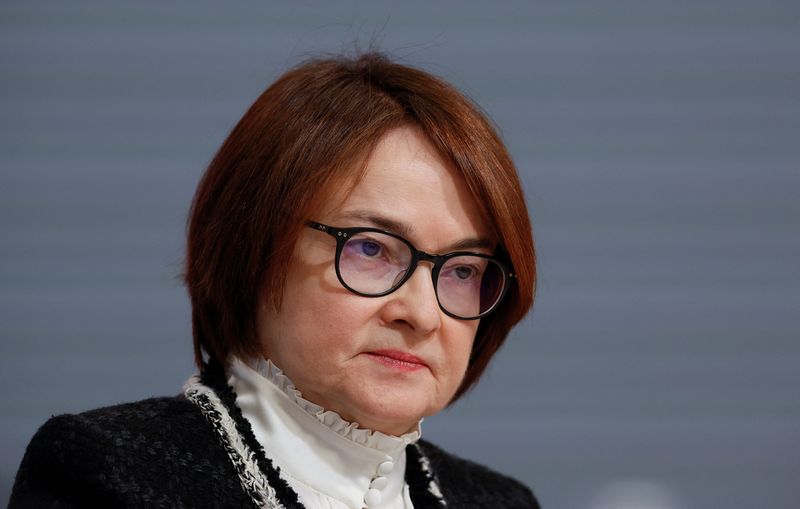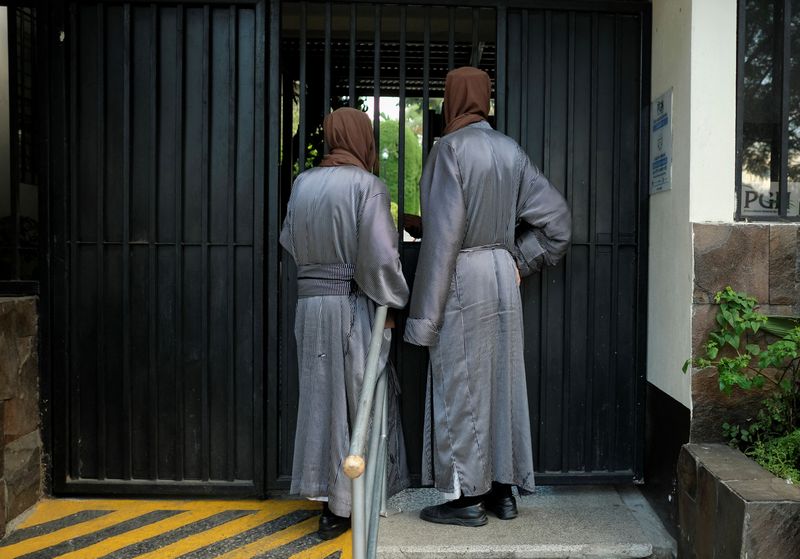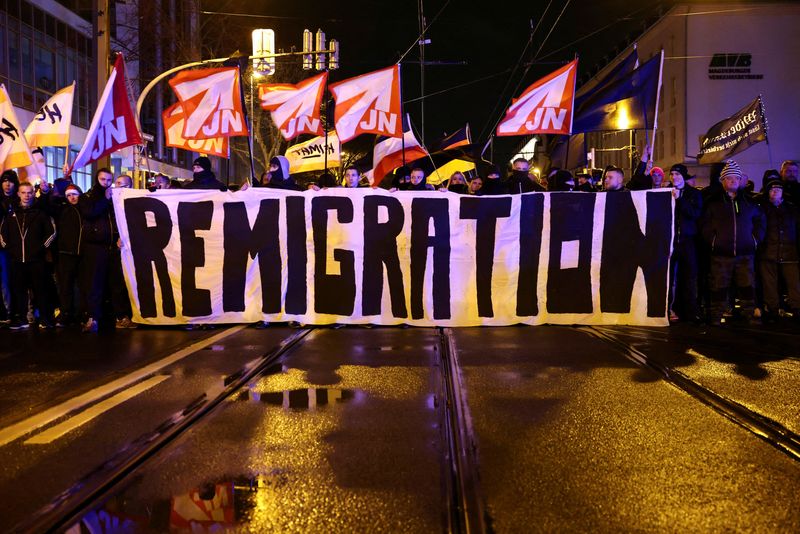By Maria Martinez
BERLIN (Reuters) -Fewer German companies are struggling to fill vacancies due to labour shortages than a year ago, the DIHK Chamber of Commerce and Industry said on Thursday, in what shows a resilient labour market that is starting to feel the impact of economic weakness.
Germany, like industrialised countries around the world, is facing deep labour shortages, particularly in skilled high-growth sectors.
The proportion of companies facing difficulties hiring was down to 43%, a DIHK survey of 23,000 companies showed, falling from 50% in the previous year.
The number of people out of work in Germany rose in November to 2.86 million. The Federal Employment Agency (BA) says it is possible that the figure could exceed the three million mark for the first time in 10 years at the beginning of 2025.
In response, German Labour Minister Hubertus Heil wants to extend the maximum duration of the short-time work allowance to 24 months from the current 12 months, according to draft regulation seen by Reuters.
On the one hand, the labour market is starting to feel the impact of economic weakness. Unemployment is seen edging higher this year to 6.0% from 5.7% in 2023, according to government forecasts.
On the other hand, the shortage of skilled workers remains high and many companies are having difficulty finding employees due to a classic mismatch: companies that want to hire are looking for different qualifications than those available, DIHK said in its report.
An estimated 1.5 million jobs are vacant in the economy as a whole, compared to 1.8 million in the previous year, according to DIHK.
Companies in Germany are becoming more restrictive in their personnel planning, a separate survey from the Ifo Institute showed on Thursday.
“Fewer and fewer companies are expanding their workforce,” said Klaus Wohlrabe, head of surveys at Ifo. “Instead, the share of companies wanting to cut jobs is increasing.”
INDUSTRIAL SLOWDOWN
How to revive Europe’s largest economy will be a central theme in a snap national election on Feb. 23.
In manufacturing in particular, the economic crisis is leaving its mark on personnel planning, Ifo’s survey showed. All industrial sectors are considering job cuts, with the metal industry, and car manufacturers and their suppliers, the hardest hit.
The proportion of companies that cannot fill vacancies fell to 43% in the industrial sector from 54% last year, the DIHK survey showed.
“High energy costs, economic policy uncertainties that impact investment decisions, and intense international competition pose great challenges for companies,” said Achim Dercks, DIHK’s Deputy Chief Executive. “This dampens the demand for personnel and at the same time reduces labour shortages.”

In construction, 53% of companies reported difficulties in filling positions, and in civil engineering it is even significantly more, at 61%.
More than four out of ten companies also cannot fill vacancies in the service sector, the survey showed.










